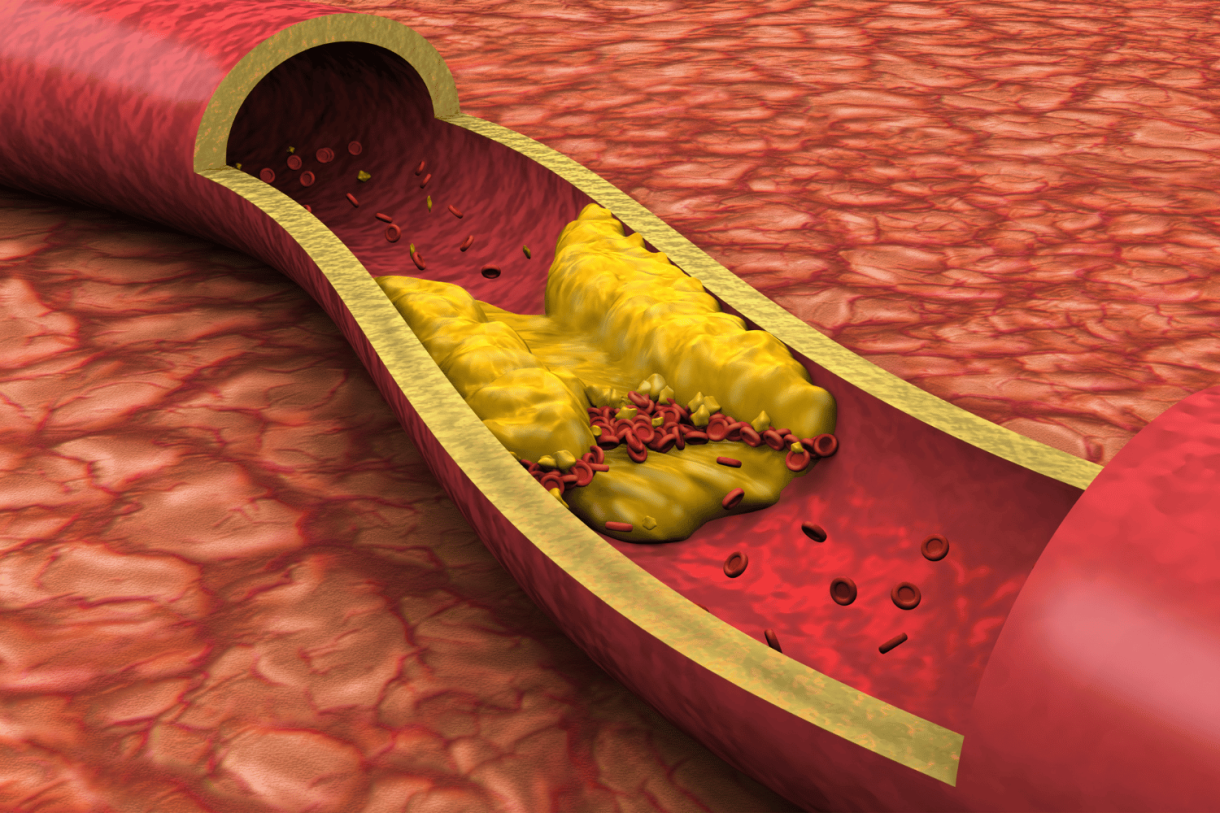
What Happens When Cholesterol Levels Get Too High?
High cholesterol, particularly low-density lipoprotein (LDL) cholesterol, poses serious risks to cardiovascular health. Usually, cholesterol levels should remain within healthy ranges, as advised by health professionals. When LDL levels become excessively high, the cholesterol can accumulate on the walls of arteries, forming plaques. These plaques narrow the arteries, a condition called atherosclerosis, which restricts blood flow to essential organs, including the heart and brain. This reduced blood flow can lead to life-threatening complications such as heart attacks and strokes.
Plaque buildup hardens the arteries and diminishes their flexibility, significantly increasing blood pressure. Small pieces of plaque can also break off and form clots that may completely block blood flow. Over time, chronic high cholesterol can worsen into severe cardiovascular issues if treatment is delayed. Medical imaging and blood tests can reveal the extent of arterial narrowing and help monitor progression.
Cholesterol is carried through the bloodstream by lipoproteins, which are categorized as LDL (bad cholesterol) and HDL (good cholesterol). An imbalance favoring LDL compromises the body’s ability to counteract plaque accumulation. Some studies indicate that high cholesterol affects a significant portion of the population, especially individuals with underlying conditions like obesity or diabetes. Prevention through lifestyle changes, such as a healthier diet and regular physical activity, along with medications like statins, can mitigate risks and manage cholesterol levels effectively.
What Signs To Look for High Cholesterol Levels?
High cholesterol often has no apparent symptoms in its early stages, silently contributing to significant cardiovascular issues over time. However, as cholesterol levels increase and the condition progresses, sure signs may emerge, indicating potential underlying risks. Here are the key warning signs to monitor and their respective implications:
Chest Pain or Angina
When arteries narrow due to plaque buildup caused by high cholesterol, blood flow to the heart decreases. This can manifest as chest pain or discomfort, particularly during physical activity or stress. Persistent chest pain should not be ignored, as it may signal coronary artery disease.
Shortness of Breath
Restricted blood flow due to narrowed arteries reduces oxygen delivery throughout the body. This can result in shortness of breath, especially during exertion. It reflects the heart operating under strain to pump blood through compromised vessels.
Fatigue
High cholesterol can force the heart to work harder to maintain blood flow, leading to reduced efficiency over time. This additional strain may cause unexplained fatigue or a persistent feeling of tiredness, even without strenuous activity.
Xanthomas
Xanthomas are fatty deposits that may appear under the skin, forming yellowish lumps or patches. These are often found around the eyes, elbows, knees, or tendons and can serve as a visible marker of elevated cholesterol levels.
Sudden Heart Attack or Stroke
Unchecked high cholesterol is a significant risk factor for severe health events like heart attacks or strokes. These occur when a plaque-clogged artery becomes blocked or ruptures, cutting off blood supply to critical areas. These events often strike without warning, emphasizing the importance of proactive cholesterol management.
Keep in mind that many of these symptoms are not exclusive to high cholesterol and could be linked to other health conditions. Regular blood tests and comprehensive checkups are essential for accurate diagnosis and effective management.
What Causes Cholesterol Levels to Become Too High?
Cholesterol levels can be elevated for various reasons, and understanding the most common causes is essential to managing this condition effectively. These contributing factors are discussed as follows:
Unhealthy Diet
A diet high in saturated and trans fats can significantly raise LDL (bad cholesterol) levels. Foods such as processed snacks, fast food, red meat, and full-fat dairy products are typical sources of these harmful fats. Consistently consuming these can lead to the accumulation of fatty deposits in blood vessels, increasing the risk of heart disease.
Lack of Exercise
Physical inactivity can lead to an imbalance in cholesterol levels by lowering HDL (good cholesterol) and raising LDL levels. Regular physical activity, such as aerobic exercises or strength training, plays a crucial role in improving overall cholesterol balance and supporting cardiovascular health.
Genetics
Hereditary conditions, such as familial hypercholesterolemia, can result in abnormally high cholesterol levels from birth. Individuals with this genetic disorder often develop premature cardiovascular disease if it is not addressed early through proper diagnosis and treatment.
Obesity
Excess body weight is associated with higher LDL levels and lower HDL levels. Obesity particularly contributes to the buildup of cholesterol in arteries and increases the overall risk of metabolic syndrome, a cluster of conditions, including unhealthy cholesterol levels.
Medical Conditions
Certain underlying medical conditions, such as diabetes, hypothyroidism, and kidney disease, can contribute to increased cholesterol levels. For instance, in people with hypothyroidism, a reduced level of thyroid hormones slows down metabolism, facilitating cholesterol accumulation in the bloodstream. Managing these conditions effectively is vital for maintaining healthy cholesterol levels.
How Can High Cholesterol Levels Affect The Heart?
The heart's health is intricately tied to cholesterol levels. Elevated cholesterol can lead to a range of serious cardiovascular problems. The following are some of the most significant consequences of persistently high cholesterol levels:
Atherosclerosis
High cholesterol contributes to the formation of plaque along arterial walls. This plaque buildup, known as atherosclerosis, narrows the arteries, reducing blood flow throughout the body. Over time, this condition can significantly strain the heart as it works harder to pump blood, eventually leading to severe complications.
Coronary Artery Disease
Excess cholesterol can narrow the coronary arteries, which supply the heart with oxygen and nutrients. Coronary artery disease results from this reduced blood flow, potentially causing chest pain, shortness of breath, and an increased risk of heart attack.
Heart Attack
When cholesterol-induced plaque completely blocks an artery leading to the heart, it can result in a heart attack. This occurs as the oxygen supply to the heart muscle is suddenly cut off, causing irreversible damage if not treated immediately.
Stroke
Plaque caused by high cholesterol can also lead to obstruction or rupture in blood vessels supplying the brain. This can result in a stroke, which impairs brain function and may cause disabilities such as paralysis, speech issues, or memory problems.
Peripheral Artery Disease
High cholesterol doesn’t only affect arteries near the heart and brain. It can also narrow and reduce blood flow in the limbs' arteries—a condition known as peripheral artery disease. This can cause pain, numbness, and cramping, particularly during physical activity, and may limit mobility over time.
Managing cholesterol levels through healthy lifestyle choices and medical interventions can help mitigate these risks and maintain long-term heart health.
How Does a Doctor Diagnose High Cholesterol?
High cholesterol is typically diagnosed through a blood test called a lipid panel, which measures levels of different types of cholesterol and triglycerides. If the results show elevated low-density lipoprotein (LDL) cholesterol, total cholesterol, or triglycerides—or decreased high-density lipoprotein (HDL) cholesterol levels—it may indicate high cholesterol.
If abnormal levels are detected, your doctor may perform additional tests to determine the underlying causes. These tests might include evaluations of your liver function, thyroid function, or screening for diabetes, as these conditions can contribute to abnormal cholesterol levels. Lifestyle factors, such as diet, exercise habits, and family history, will also be reviewed to assess overall risks.
An essential tool for assessing the potential effects of high cholesterol on the body is imaging to detect arterial blockages or damage. Tests like coronary calcium scans or carotid ultrasounds may be recommended to visualize how cholesterol buildup affects blood flow and to identify early signs of atherosclerosis.
Managing cholesterol levels effectively often requires prompt diagnosis followed by a combination of lifestyle changes and, if necessary, medication to reduce associated health risks and protect cardiovascular well-being.
What Treatments Can Help Lower High Cholesterol?
Managing high cholesterol involves a combination of lifestyle changes and medical treatments. Treatment depends on cholesterol levels and associated risk factors for heart disease.
Diet Changes
Adopting a heart-healthy diet is one of the most effective ways to lower cholesterol. Reducing saturated and trans fats, and cholesterol-rich foods, while increasing intake of fruits, vegetables, whole grains, and healthy fats (such as those in nuts and olive oil) can help improve cholesterol levels. Soluble fiber, in particular, can reduce low-density lipoprotein (LDL), or "bad" cholesterol, by binding to cholesterol in the digestive system and removing it from the body.
Exercising Regularly
Regular physical activity, such as brisk walking, cycling, or swimming, can help increase high-density lipoprotein (HDL), or "good" cholesterol, while lowering triglycerides and LDL cholesterol. Exercise also supports better weight management, which is critical for maintaining healthy cholesterol levels.
Stopping or Changing Medications
Some medications or conditions, like hypothyroidism or certain steroids, can raise cholesterol levels. Doctors may stop or adjust these medications to prevent contributing to high cholesterol. Additionally, addressing underlying health issues that influence cholesterol metabolism can significantly help.
Cholesterol-Lowering Medications
For individuals who cannot lower cholesterol levels through lifestyle changes alone, medications may be necessary. Statins, such as atorvastatin or simvastatin, are the most common drugs prescribed to lower LDL cholesterol by slowing cholesterol production in the liver. Other medications, like bile acid sequestrants, ezetimibe, or PCSK9 inhibitors, may also be recommended based on individual needs.
Omega-3 Supplements
For those with elevated triglyceride levels, omega-3 fatty acid supplements, such as fish oil, may help reduce these harmful fats in the blood. These supplements are often used alongside other therapies to improve overall lipid profiles.
Medical Procedures
Individuals with extremely high cholesterol levels or conditions like familial hypercholesterolemia may require advanced treatment options such as LDL apheresis. This procedure removes LDL cholesterol directly from the blood, similar to dialysis, and is typically reserved for severe cases.
Addressing Risk Factors
Managing other risk factors, such as high blood pressure, diabetes, and smoking, is essential for reducing the cardiovascular risks associated with high cholesterol. Combining these efforts can provide a holistic approach to improving heart health and reducing complications.
By making consistent lifestyle changes and following medical recommendations, most individuals can effectively manage high cholesterol and reduce the risk of heart disease.
How to Deal With a High Cholesterol Emergency?
In cases of severe complications like a heart attack or stroke, immediate action is critical to address the risks associated with high cholesterol. These emergencies are often linked to the formation of cholesterol plaques that narrow arteries and restrict blood flow to vital organs. Here's what to do in such situations:
Recognize the Symptoms
Be vigilant for warning signs of a heart attack, such as chest pain or tightness, shortness of breath, sweating, nausea, or discomfort radiating to the arms, neck, or jaw. For a stroke, watch for sudden weakness or numbness on one side of the body, difficulty speaking, blurry vision, or loss of balance. Early recognition of symptoms can save lives by ensuring timely medical intervention.
Call for Emergency Assistance
The first and most crucial step is to call 911 if any signs of a heart attack or stroke are present. Time is critical, and immediate professional help can prevent further damage. Do not attempt to drive yourself to the hospital, as your condition could worsen en route.
Administer First Aid
While waiting for emergency responders, assist the patient by having them sit or lie down in a comfortable position. Chewing and swallowing an aspirin, if not allergic, can help thin the blood and reduce the severity of the blockage. Stay calm and provide reassurance to reduce stress, which can worsen symptoms.
Hospital Care and Treatment
Once at the hospital, medical professionals will perform tests such as an electrocardiogram (ECG) and imaging studies to confirm the diagnosis and determine the next steps. Treatments may include clot-busting drugs, statins to stabilize cholesterol plaques, or procedures like angioplasty or stenting to restore blood flow.
High cholesterol emergencies underscore the importance of preventive care, such as regular screenings, medication adherence, and lifestyle changes, to reduce the risks of life-threatening complications.
Managing High Cholesterol to Protect Your Heart!
Cholesterol and heart health are closely connected. Cholesterol is a vital substance that helps build cells and produce hormones, but excessive amounts can be harmful. When cholesterol levels are too high, it can lead to a condition called hypercholesterolemia, which increases the risk of atherosclerosis, heart attack, and stroke. These complications occur because excess cholesterol can build up in the arteries, forming plaques that restrict blood flow and strain the heart.
It's crucial to recognize potential symptoms like chest pain, fatigue, or shortness of breath, and seek medical advice to check your cholesterol levels through a blood test. Fortunately, there are effective treatment options available. These include lifestyle changes such as eating a heart-healthy diet, engaging in regular exercise, and quitting smoking. Medications like statins can also help lower cholesterol levels, and in severe cases, advanced medical procedures might be necessary.
Since high cholesterol can lead to sudden heart issues, being prepared matters. Taking preventive steps such as learning about CPR (cardiopulmonary resuscitation) or familiarizing yourself with AED (automated external defibrillators) could make a life-saving difference. These skills are easy to acquire and could help you protect yourself or someone you care about in a critical moment.


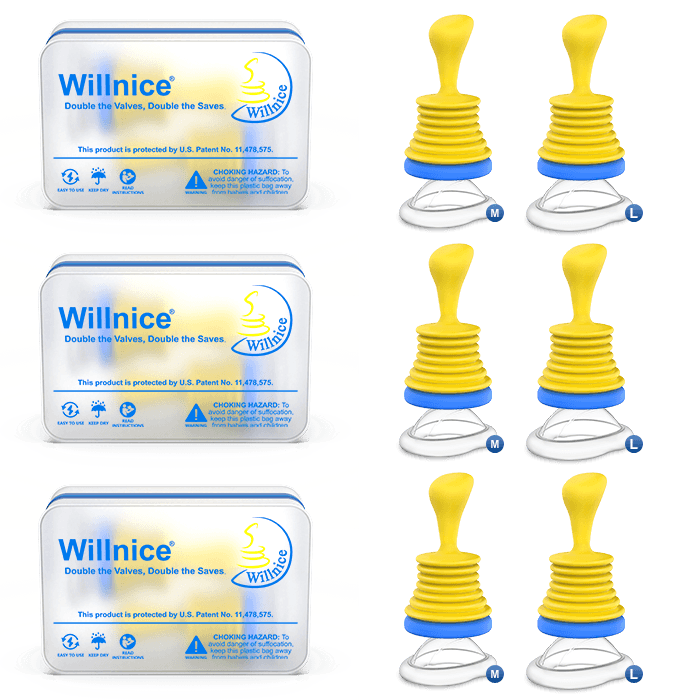
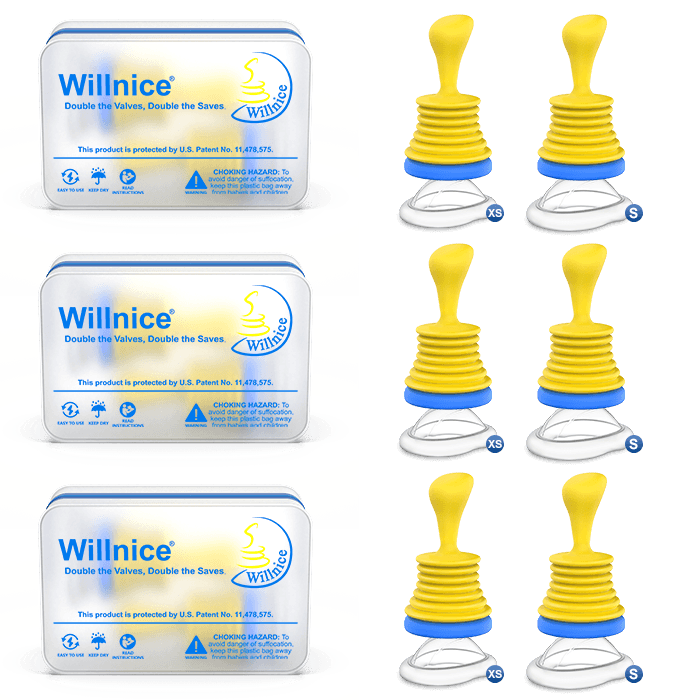
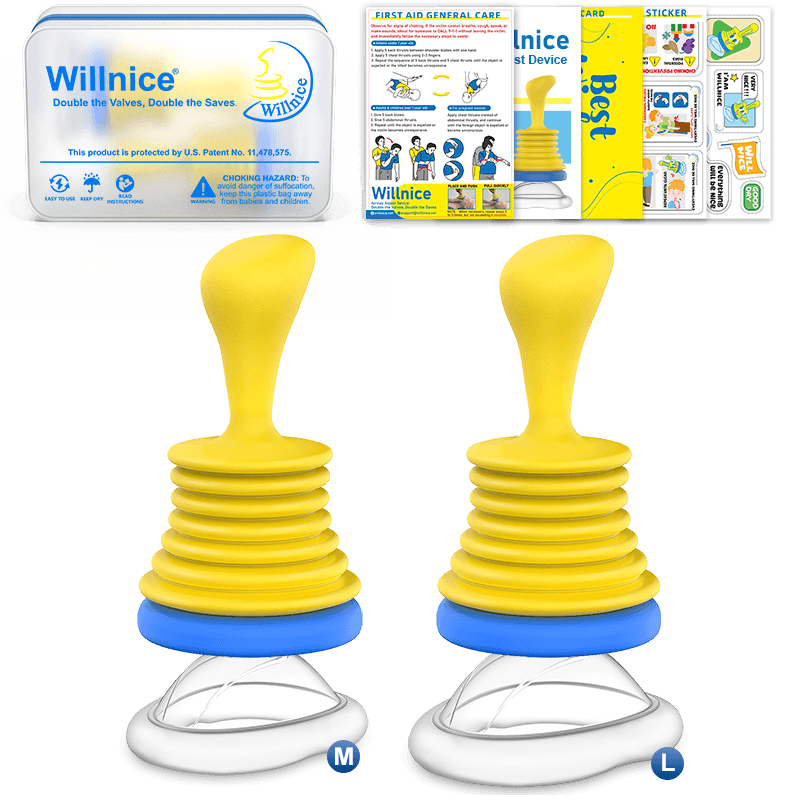
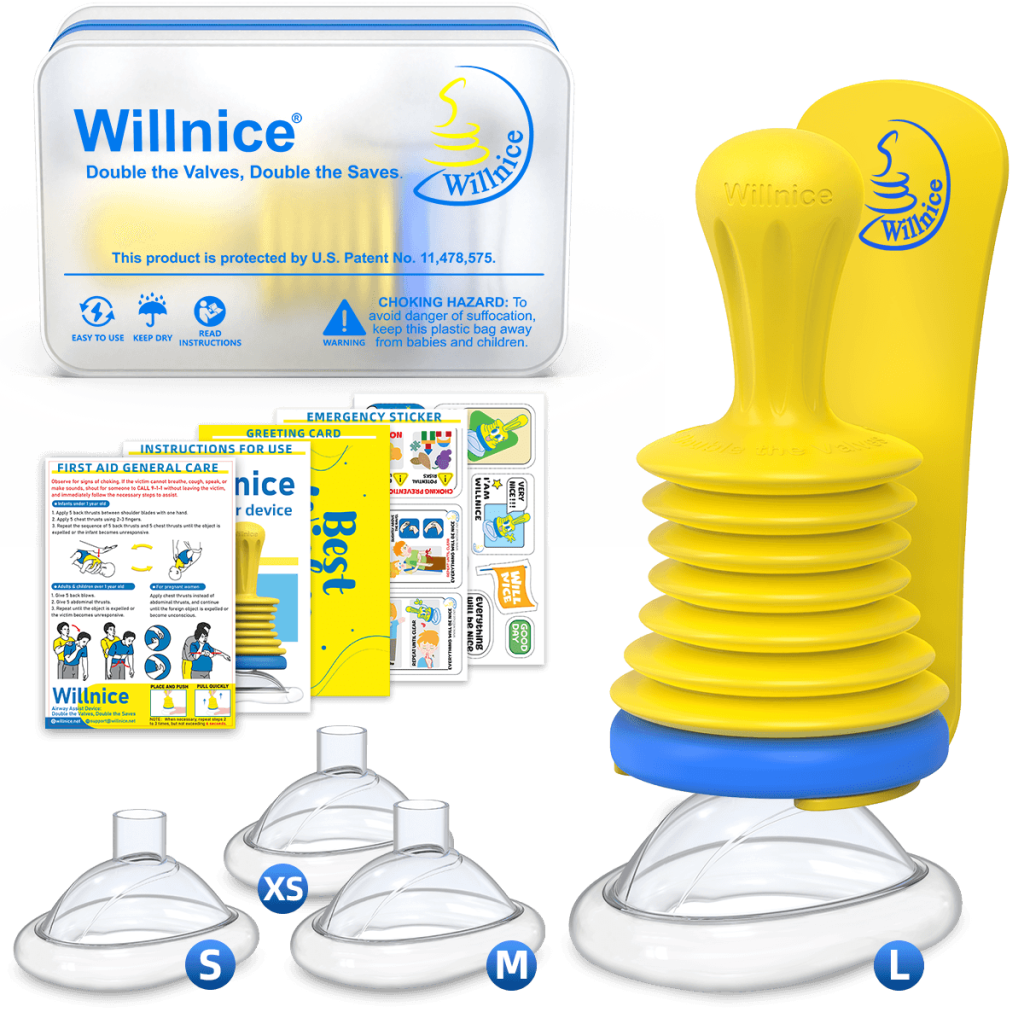


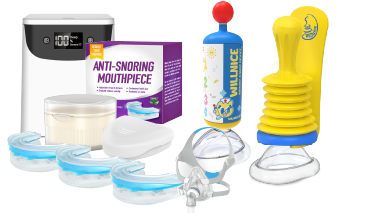
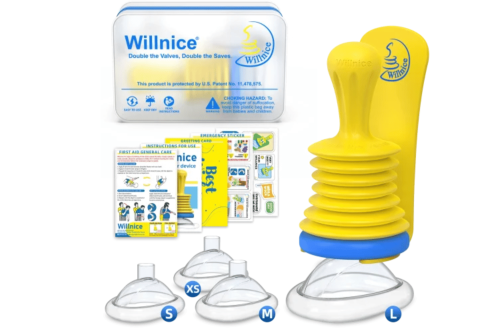





 Login with Google
Login with Google Login with Facebook
Login with Facebook